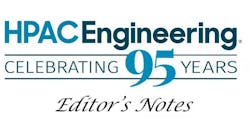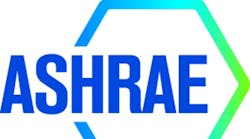- Design-build project delivery—challenges and benefits, successful projects, and topics including contracts and alternative design and construction processes.
- Modern residential systems—energy-efficient solutions and the latest advances.
- Cutting-edge technologies—efforts to achieve net-zero-energy buildings.
Additionally, papers addressing advances and practices across HVACR systems, equipment, fundamentals, and applications are sought, especially for the International Design Track.
There are two types of paper submissions:
- Conference: These are submitted as a PDF, have an eight-single-spaced-page maximum length, and undergo a single-blind review. Abstracts are due March 23, 2015, with accepted papers due July 6, 2015.
- Full technical: These have a 30-double-spaced-page maximum limit and undergo a rigorous double-blind review. Papers are due April 20, 2015.
Graduate students who submit a conference paper are eligible to participate in a recognition program called Best Graduate Student Paper. The paper must be based on the student’s thesis, the student must be the first author listed, and the submitter must be a graduate student at the time of the abstract submission. The student chosen will receive funding of up to $2,500 to offset expenses of attending the 12th CLIMA World Congress May 22-25, 2016, in Aalborg, Denmark.
For more information and to submit a conference-paper abstract or a technical paper, go to www.ashrae.org/orlando.










